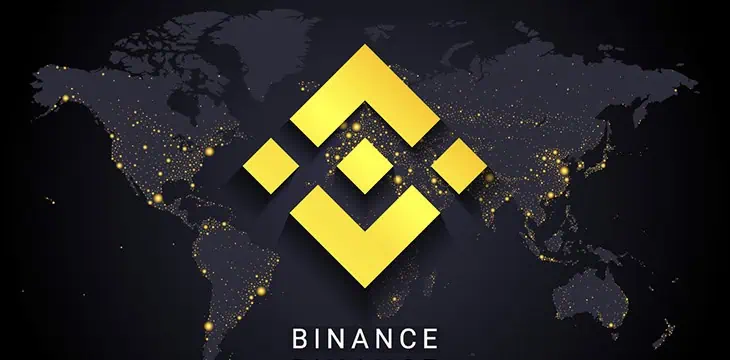|
Getting your Trinity Audio player ready...
|
Binance has been hit with a class action for failing to protect customers from “bad actors” in a suit that essentially calls digital asset exchanges the blind spots of blockchain analytics.
On August 16, three individuals filed a civil suit in the U.S. District Court for the Western District of Washington, accusing Binance, Binance.US, and founder Changpeng ‘CZ’ Zhao of failing to protect individuals who suffered theft of their digital assets that later transited through Binance.com accounts.
The plaintiffs cite Binance’s “willful disregard” of anti-money laundering (AML), know your customer (KYC), and other controls required under the Bank Secrecy Act (BSA). Binance admitted to these failures when it reached its $4.3 billion settlement with U.S. federal authorities in November 2023.
The suit further alleges that Binance became “a magnet and hub for criminals, users from sanctioned jurisdictions, terrorists and other bad actors, because Binance.com became a critical part of their efforts to launder crypto which was stolen or obtained by other unlawful means. Binance.com became a preferred-choice as the ‘get-away driver’ for a large number of bad actors.”
The complaint also describes how “there is a permanent record of those transactions on the public blockchain and the chain-of-title of cryptocurrency is permanently and accurately traceable on the blockchain, which acts as a ledger.”
However, exchanges such as Binance offer bad actors “a way to remove the connection between the ledger and their digital assets so the digital assets would no longer be traceable.” As a result, “the Binance Crypto-Wash Enterprise became a leading conduit of stolen cryptocurrency, enabling bad actors to seamlessly transfer stolen crypto around the U.S. and the world.”
Two of the three plaintiffs lost “tens of thousands” from their accounts on the Coinbase (NASDAQ: COIN) exchange, while the third lost “more than $1.5 million” from what sounds like a compromised private wallet. None of the plaintiffs had accounts on Binance.com or Binance.US, to which the stolen assets were later transferred.
The suit alleges that had Binance implemented proper controls. They could have “identified potential crypto laundering transactions … reported them to the authorities and would have prevented the crypto belonging to Plaintiffs and the members of the Class from being laundered and withdrawn.”
The plaintiffs are seeking treble their monetary damages plus interest, restitution, injunctive relief, costs, and expenses, including legal and expert fees. The plaintiffs are represented by Seattle-based Keller Rohrback, a firm with significant class action experience, including a $725 million settlement with Facebook (NASDAQ: META) over privacy violations and a $142 million settlement with Wells Fargo over the bank fraudulently opening unauthorized accounts on behalf of customers.
Bill Hughes, an attorney with the Ethereum-based software outfit Consensys (which is facing its own legal challenges), suggested that Keller Rohrback “smell blood in the water” following Binance’s November settlement and CZ’s subsequent imprisonment in a U.S. federal facility (from which he’s scheduled to be released in late-September).
Hughes believes the plaintiffs will have difficulty proving their argument that blockchain analytics could have allowed them to trace and recover their stolen assets had it not been for Binance’s failures. But Keller Rohrback’s “pockets are deep,” and Hughes predicts Binance will look to settle ASAP rather than face a discovery process in which “the efficacy of blockchain analytics itself and on-chain asset recovery will be on trial!”
Play stupid games, win stupid prizes
Binance has yet to comment publicly on the suit, but we can’t help but notice they rushed out a blog post a few days later detailing how it “prevented over $2.4 billion in potential losses from scams and fraud, protecting more than 1.2 million users globally” in the first seven months of 2024. Around 45% of that $2.4 billion was “linked to suspected crypto scams.”
Speaking of scammers, crypto promoter Ben ‘Bitboy’ Armstrong and Miami Heat baller Jimmy Butler have agreed to pay $340,000—of which Butler paid $300,000—to settle a class action accusing the pair of hyping unregistered securities on Binance. News of the settlement, which still requires court approval, was first reported by Law.com.
The March 2023 civil suit accused Armstrong, Butler, and a third influencer—YouTuber Graham Stephan—of acting as Binance’s ‘brand ambassadors,’ promoting Binance to U.S. customers and receiving commissions for doing so. The suit singled out Binance’s in-house BNB token and BUSD, the stablecoin formerly issued by Paxos Trust in a doomed partnership with Binance, as unregistered securities.
Armstrong’s payout represents the total sum he earned from shilling Binance. Butler continues to deny “all wrongdoing whatsoever” and suggested that he would be “absolved of all liability” if the matter went to trial. But given that his latest contract pays him $45.2 million per season, $300k is just what you’re willing to pay when you want something to be over.
If at first you don’t succeed, comply, comply again
In other jurisdictions, Binance has been awkwardly trying to mend fences with regulators and law enforcement agencies. In India, Binance registered as a reporting entity with the country’s Financial Intelligence Unit (FIU), a status that will allow Binance to offer Indian customers full access to its app and website.
The registration came just two months after the FIU hit Binance with a $2.2 million penalty for failing to comply with the nation’s Prevention of Money Laundering Act (PMLA). That fine followed the December 2023′ show cause’ orders the FIU sent to Binance and eight other exchanges, including Bitfinex, Bitstamp, Huobi/HTX, Kraken, Kucoin, and others.
Binance’s official announcement had the gall to claim the registration “underscores Binance’s commitment to adhering to anti-money laundering (AML) standards,” adding that its “commitment to compliance is fundamental to our business strategy.” Sure it is.
Binance has yet to resolve the $86 million goods and services tax bill recently imposed by India’s Directorate General of GST Intelligence. The back tax bill was based on several years of Binance operating without authorization in India, a history that Binance’s self-proclaimed ‘commitment to compliance’ appears to have memory-holed.
Mixed bag in LatAm
On August 13, Binance reached a $1.76 million settlement with Brazil’s securities regulator (CVM) to resolve the exchange’s long history of offering derivatives trading to local customers without a ‘securities intermediary’ permit.
The dustup dates back to mid-2020 when CVM ordered Binance to “immediately suspend” its promotion of this forbidden fruit. Binance originally offered to settle the complaint by paying just under $400,000, but CVM rejected this lowball offer.
In October 2023, a Brazilian congressional committee recommended charges be brought against CZ and some other senior Binance execs based on the exchange lacking local permission to operate. The committee also alleged ‘fraudulent management practices’ by some 45 individuals connected to Binance.
On the other side of Brazil’s northern border, Venezuela blocked local access to Binance earlier this month for hazy reasons. The DNS block came a couple weeks after last month’s disputed presidential election. Incumbent Nicolas Maduro ordered a 10-day block of access to various digital portals, including X/Twitter, while he sought to delegitimize the opposition’s claims of victory.
It’s unclear why Binance was singled out for special treatment beyond the fact that it never obtained a license to operate in Venezuela. Undaunted, Binance issued a notice assuring its Venezuelan customers that their funds were safe despite the “access restrictions,” adding that the company was “monitoring the situation closely to address it in the best and fastest way possible.”
Chinese connection
We’ll close with the results of a recent TechFlow survey conducted from May 22 to June 30, which saw just over 2,000 individuals respond to a questionnaire distributed through social media platforms and community forums.
The survey found that Binance is overwhelmingly the preferred centralized exchange among the Chinese-speaking community, with 96.7% of respondents claiming to ‘more frequently’ use Binance. Respondents were asked to list their top three choices, with OKX ranked second at 83.5% and Gate.io third at just under 40%.
Binance also topped the chart for the exchange on which respondents stored their largest digital asset positions. Binance was cited by 63.1% of users, well ahead of runner-up OKX at 25.3%, while third-place Gate.io managed only 4%.
Binance’s dominance also showed as the top exchange at which respondents made their highest returns (60.7%), with OKX at 24.1% and Gate.io at 4.9%. Ditto for participation in new product launches, with Binance Launchpad on top with 68.2%, followed by OKX Jumpstart (14.7%) and Gate.io Startup (5.2%).
One-quarter of respondents said they relied on token trading as their primary source of income, which might explain why more than half expressed ‘general anxiety’ regarding the ‘crypto’ market’s current state. Intriguingly, over 40% of respondents admitted praying to the ‘God of Wealth’ to bless their token trades.
Binance’s dominance among Chinese users, coupled with the exchange’s historic disdain for following regulations, could pose problems now that China has added ‘virtual asset’ transactions to its revised money laundering laws. With prison terms of up to 10 years for cases involving “serious circumstances,” Binance’s senior management is likely praying to the ‘God of Clemency’ that they don’t end up spending a full decade in a Chinese prison.
Watch: Teranode & the Web3 world with edge-to-edge electronic value system

 04-16-2025
04-16-2025 





